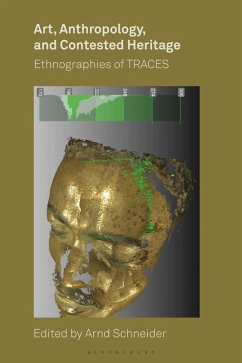This book presents innovative ethnographic perspectives on the intersections between art, anthropology, and contested cultural heritage, drawing on research from the interdisciplinary TRACES project (funded by the EU's Horizon 2020 program). The case studies in this volume critically assess how and in which arrangements artistic/aesthetic methods and creative everyday practices contribute to strengthening communities both culturally and economically. They also explore the extent to which these methods emphasize minority voices and ultimately set in motion a process of reflexive Europeanisation from below which unfolds within Europe and beyond its borders.
At the heart of the book is the development of a new way of transmitting contentious cultural heritage, which responds to the present situation in Europe of unstable political conditions and a sense of Europe in crisis. With chapters looking at difficult art exhibitions on colonialism, death masks, Holocaust memorials, and skull collections, the contributors articulate a response to the crisis in current economic-political conditions in Europe and advances brand new theoretical groundwork on the configuration of a renewed European identity.
At the heart of the book is the development of a new way of transmitting contentious cultural heritage, which responds to the present situation in Europe of unstable political conditions and a sense of Europe in crisis. With chapters looking at difficult art exhibitions on colonialism, death masks, Holocaust memorials, and skull collections, the contributors articulate a response to the crisis in current economic-political conditions in Europe and advances brand new theoretical groundwork on the configuration of a renewed European identity.


